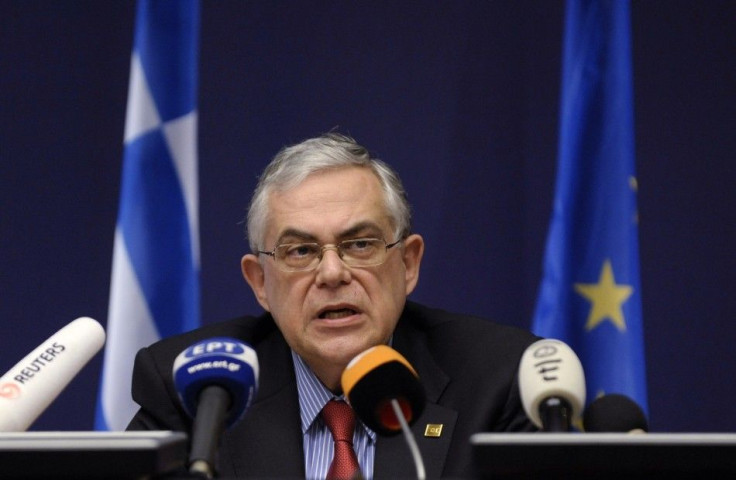A 3rd Bailout For Greece May Be Needed: PM

Remember the €130 billion ($174 billion) bailout Greece got earlier this month, the one that kept world markets gyrating wildly as it was being negotiated and eventually was welcomed with violent riots in the streets of Athens?
Turns out it may have been a prelude of what's to come.
That's according to Prime Minister Lucas Papademos, who told an Italian newspaper Friday a third rescue of his nation's faltering, heavily indebted economy might be needed.
Greece will do everything possible to make a third adjustment program unnecessary, Papademos told business daily Il Sole 24 Ore. Having said that, markets may not be accessible by Greece even if it has implemented fully all measures agreed on.
It cannot be excluded that some financial support may be necessary, but we must try hard to avoid such an outcome, he added.
The comments from Papademos, a former central bank governor who is still struggling to sell Greek citizens on the legitimacy of the bailout deals with international lenders, comes as rival politicians jockey for position ahead of parliamentary elections in April or May.
Whatever regime arises then is expected to continue Greece's bailout-driven agenda of painful and unpopular austerity measures. Plans to cut an additional €11 billion in spending must be made by June.
But doubts persist as to how such deep cuts can be enacted. The current parliament has found it difficul to pass legislation meant to reform Greece's regulatory and tax systems, even though an overhaul was a precondition of the most recent bailout.
Over the last few weeks, there has been a lack of continuity in the Greek reform efforts as we approach the elections, a senior economist at a Greek bank was quoted as saying by the Wall Street Journal. There is no question that this is going to be a nerve-racking process for the Europeans. ... They haven't lived through a Greek election campaign before.
Also causing Greece's European partners concern are calls by the Mediterranean country's political establishment to abandon the euro zone rather than submit to further foreign-imposed austerity.
Seemingly aware of such misgivings, Papademos told Il Sole 24 Ore that more than 70 percent of the Greek people support the country's continuing participation in the euro area and that they realize, despite the sacrifices made, that the long-term benefits from remaining in the euro zone outweigh the short-term costs.
The return of the drachma would trigger high inflation, exchange instability and a fall in the real value of bank deposits, he added, referring to Greece's pre-euro national currency.
Separately, the prime minister said he's further emboldened by public opinion on fundamental matters. The majority of the Greek people want the country to change, Papademos told Agence France-Presse. This will provide a good basis for policy continuity and the implementation of the second economic program.
© Copyright IBTimes 2024. All rights reserved.



















